I don’t have much pity for the woke mob that’s having to deal with the mental turmoil of both the notions that self-defense is allowed in the United States and that the government can’t really restrict people’s right to keep and bear arms. Just submit. Isn’t that what the anti-freedom caucus basically asks of Second Amendment supporters when new infringements are being crammed down their throats? Our friends on the other side over at Slate just outdid themselves in an opinion piece. Like most left of center news sources, they too can’t handle the possibility that SCOTUS may return liberties to the people.
During oral arguments earlier this month in the most important Second Amendment case to reach the Supreme Court in years, Chief Justice John Roberts and Justices Samuel Alito and Amy Coney Barrett seemed especially interested in where lines around restricting guns in public spaces should be drawn. Should the Second Amendment guarantee individuals the freedom to carry concealed weapons in a courthouse or in a stadium? How much weight should the court give to the density of the community in which the firearms are to be carried? Does the amount of crime favor or disfavor gun owners?
Critically, and missed in the wider discourse around the case, Paul Clement, the attorney for New York State Rifle & Pistol Association, opened the door to resolving the case by looking at the court’s past First Amendment jurisprudence and applying it to gun rights. Contrary to what Clement argued, though, framing the guns case through a First Amendment lens reveals that the court has drawn clear and workable lines that argue for commonsense regulations. If the Supreme Court were to hold gun owners to the same standards it holds people seeking to take part in protected speech and assembly, New York’s current restrictions on concealed carry would actually survive in some modified form. If that doesn’t happen, then the court’s conservatives would be elevating the status of the Second Amendment above First Amendment protections for the first time ever.
The article then goes on a tear about restrictions on the First Amendment. My personal favorite that’s always brought up is “well, yah know you need a permit to protest and stuff”. This is true. But the why’s to that are much bigger than the fact that a permit is needed. From some of NYSRPA’s transcript discussing other permitted activities:
JUSTICE BREYER: Now, if you’re trying to get uniformity, doesn’t the First Amendment — isn’t it filled with — local statutes use the word “may,” parade permits, event permits.
MS. UNDERWOOD: Yes.
JUSTICE BREYER: So it’s not special?
MS. UNDERWOOD: Correct. In a — in a
JUSTICE BREYER: Can — can you think of —
MS. UNDERWOOD: — in — in the areas where permitting happens, which includes First Amendment areas —
JUSTICE BREYER: Yeah.
MS. UNDERWOOD: — it could be parades, it could be solicitation for charity, there are various areas where First Amendment activity is –
But none of those activities are “may” issue, are they? Why a permit might be needed for a parade or protest include the need for more police presence in that area. Maybe there will be the need of porta-pottys on the site. The many “why’s” to the permitting requirements surrounding First Amendment protected activities has to do with a larger picture of public safety in the form of logistics. If a jurisdiction did not issue a permit for a group looking to engage in a peaceful activity, the ACLU would be knocking on their door in a quick hurry.
The question presented in NYSRPA needs to be read by the writers and editors over at Slate. The justices agreed to answer the following question:
Whether the State’s denial of petitioners’ applications for concealed-carry licenses for self-defense violated the Second Amendment.
Would Slate conclude that if say an LGBTQ+ group was looking to have a rally in a certain town that their First Amendment rights were violated if they were denied a permit? I think the would make that conclusion. Let’s look closer at one of the statements in the article:
If the Supreme Court were to hold gun owners to the same standards it holds people seeking to take part in protected speech and assembly, New York’s current restrictions on concealed carry would actually survive in some modified form. If that doesn’t happen, then the court’s conservatives would be elevating the status of the Second Amendment above First Amendment protections for the first time ever.
This assertion is full of bombast. If SCOTUS answered the question presented in a manner which favored freedom over usurpation of rights, that would not place the Second Amendment above the First. That won’t even make the Second Amendment equal to the First. People don’t need to fill out a 4473 in order to buy computers, paper, pens, bibles, so on and so forth. Citizens don’t need to be free of a list of disqualifiers to exercise free expression. No, not at all. Stating that “New York’s current restrictions on concealed carry would actually survive in some modified form” is precisely what Clement discussed during the arguments.
JUSTICE KAVANAUGH: Mr. Clement, I have several questions. First, I want to make sure I understand your main problem here with this permitting regime, as I understand it, is the discretion that’s involved with the permitting officials, and your point that that’s just not how we do constitutional rights, where we allow basic blanket discretion to grant or deny
something for all sorts of reasons. But I understand you would not object or do not object to the regimes that are used in many of the other 42 states, the shall issue regimes. I mean, there could be particular problems with those, but I do not understand you to object to shall issue regimes. Is that accurate?MR. CLEMENT: That’s accurate, Justice Kavanaugh.[…]
Clement states clearly he has no objection to the need for a permit. The objection lies directly in the “may issue” versus “shall issue” schemes. To Slate’s point, that would be a modified form of New York’s restrictions, would it not?
The creativity of arguing against fundamental freedoms being returned to the citizens of the last eight “may issues” states is getting up there. If the so-called arbitrators of truth in our main stream media and academia are going to conflate the First and Second Amendments, they best be prepared to really think about what that means.
Those of us on freedom’s side know that this is an all hands on deck scenario for the progressives. For whatever reason it’s important for them to flood society with the narrative that they hold or want to hold true. Is there an idea that by engaging in the dissemination of opinion contrary to what our Constitution holds will help re-write it? What the historians will be able to see in the rolls and records of what the progressives had to say about the situation is going to amount to “that time period people were actually crying about the reinstatement of freedoms”. That’ll be an interesting history lesson, especially if it’s delivered unpolluted without opinion passed off as truth.
NYSRPA is not going to abolish regulation should freedom win. It’s just going to make the process more “equitable”.
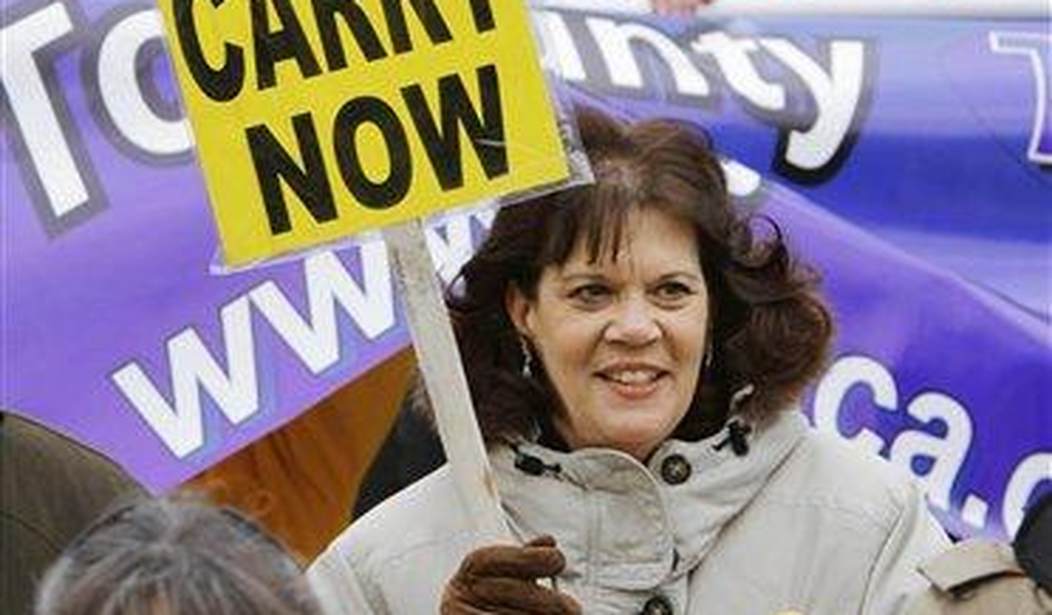

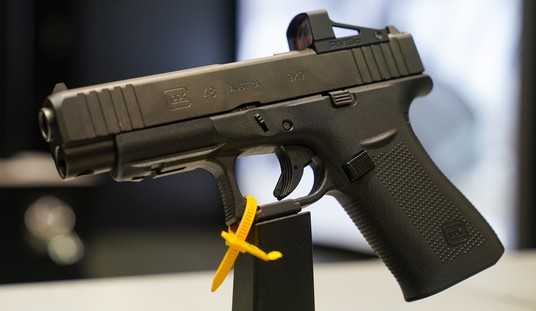

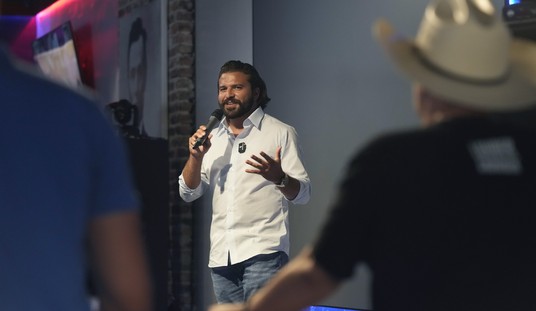

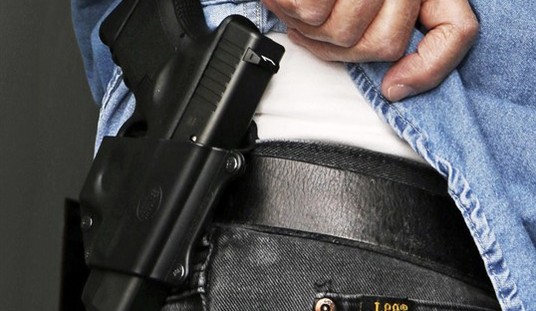
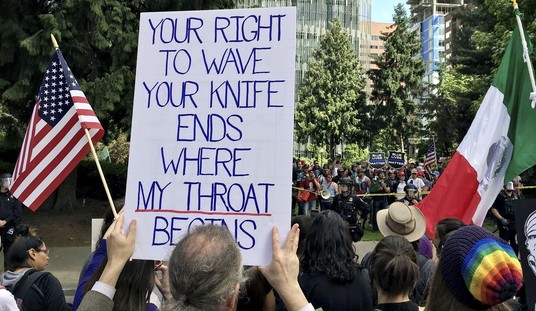
Join the conversation as a VIP Member